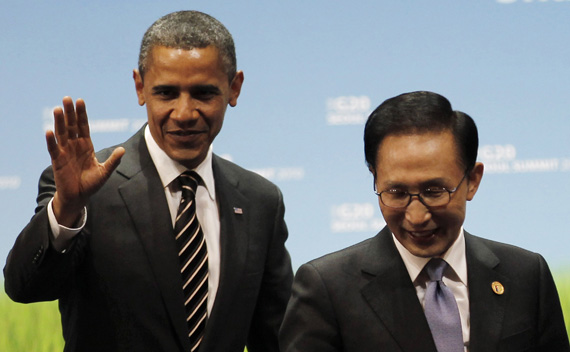The KORUS FTA, China’s Rise, and the U.S.-ROK Security Alliance
More on:

The East Asia Institute has just published my critique of an earlier paper by Dong Sun Lee and Sung Eun Kim, which concludes that ratification of the KORUS FTA will not “markedly reinforce” the U.S.-ROK security alliance. I agree with that conclusion, but I think that the KORUS FTA provides an important strategic message of psychological support for the U.S.-ROK alliance as China’s economic clout grows.
I also challenge the assertion that the United States can use economic clout within the U.S.-ROK alliance to impose its will on South Korea. South Korean and Japanese investments in their alliances with the United States have increased most dramatically when the alliances have been beset by turmoil and uncertainty, i.e., fears of abandonment serve to strengthen investment in the alliances.
But investments in the alliances have slackened when the relationship is going well, i.e., the Lee Myung-Bak administration’s investment in alliance burden sharing is flat compared to the dramatic increase in spending on the alliance that occurred under Roh Moo-hyun. Likewise, Japanese spending to support the alliance increased sharply in the early 1990s at a time of uncertainty in Japan regarding the future of the U.S. presence, but remained flat once the United States reaffirmed the alliance with Japan in a 1996 Joint Statement between President Clinton and Prime Minister Hashimoto.
An unanswered question from this discussion that deserves careful consideration is whether extensive American and South Korean economic ties with China will serve to impose de facto constraints on the capability of the U.S.-ROK and U.S.-Japan alliances, even despite the fact that economic ties with China have had no apparent effect to date on political and security issues. China’s tactical halt in the supply of rare earth metals during last September’s Senkakus dispute suggests that China will seek to use economic leverage for political advantage in specific cases.
More on:
 Online Store
Online Store